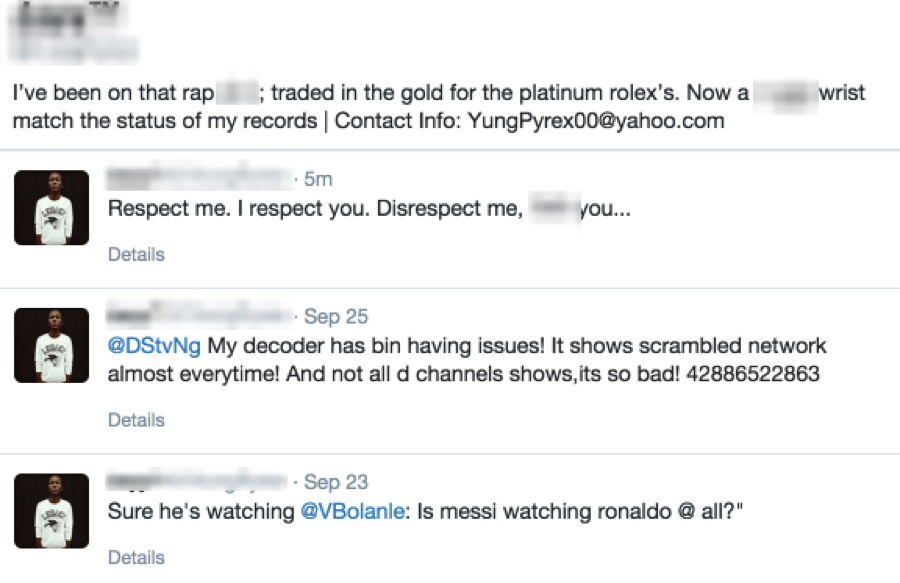The Twitter crowd is fickle. They’re going to unfollow you if you violate any of their preconceived notions of what you should (or shouldn’t) be doing on the platform.
If someone unfollows you, then heck. Their loss, right?
Well, in a sense, yes. It’s not the end of the world if you lose a few followers. After all, it’s better to have an engaged audience than merely a big follower count.
But on the other hand, you don’t want to alienate users unnecessarily. You very well may be losing followers for all the wrong reasons. This quick guide will walk you through the big mistakes that might cost you traffic, and explain how you can hang on to your followers.
1. You’re tweeting off-topic
Your profile bio tells people what you are tweeting about. Stay on topic.
Most people who follow you will first read your bio. They want to get a sense of who you are and what kind of content you’re going to be filling their feed with.
When they read your profile bio they will make a basic decision: 1) I want to follow this person. 2) I do not want to follow this person.
Why do they follow you? Because they want what you can provide in the form of entertainment, information, value, association, etc. It’s your profile bio that pulled them in.
If I check out the Twitter profile of Bernard Marr, I expect him to tweet about KPIs, strategic performance, and big data. That’s what his bio tells me. If he starts tweeting about luxury carpets, I’m going to lose interest.
Sure enough, Benard is staying on topic:
So, what happens when you go off-topic? The whole reason they followed you was so they could get tweets about a certain topic. Now, you’re tweeting about something totally different. So, they will unfollow you.
- You start tweeting about your poodles instead of content marketing? They unfollow.
- You start tweeting only about your passion for caffeinated beverages rather than big data. Unfollow.
- You start tweeting about your kids’ antics instead of “social media insights.” Click. Unfollow. Goodbye.
Here’s how you can avoid unnecessary falloff:
- Define your goals for Twitter. Is it to inform close friends about your toddler’s milestones, or is it to create connections that will advance your consulting business? You’re going to have to make a distinction, and decide. That’s not to say you can never tweet about your kid. But you do need to make sure that your tweets generally stay on topic. I like what Stuart J. Davidson said about this: “Consider the theory of a landing page. It has a single objective—to increase conversion rates. Landing pages tend to work well because they’re simple, concise and purposeful. Now apply this to your Twitter marketing efforts.”
- In your profile bio, list the most important topics that you will tweet about. These are the typical keywords that characterize your industry.
- Make sure that your tweets line up with those important topics. Stay on topic.
2. You provide zero value
Twitter users are looking for value exchange.
The value system is simple. It works like this:
- They want to give value to other users, the people who follow them.
- They want to receive value from others, the people who they follow.
If they are sensing that you aren’t delivering value, they will unfollow you.
How do you provide value?
- Tweeting helpful links.
- Tweeting informative studies.
- Tweeting quick tips.
- Tweeting industry-specific news.
How do you not provide value?
- Tweeting about yourself
- Tweeting about your product.
- Tweeting about your feelings, moods, or preferences.
Social scientists haven’t examined the incidence of schadenfreude among Twitterers, but they’ve long suspected that narcissistic personalities are drawn to the site.
Here’s the thing. First, even though Twitter might attract narcissistic individuals, so does virtually every other social media site. No big deal. And, second, in spite of being an attractive venue for narcissistic event hosting, the Twitter community has little toleration for narcissism. That’s a crazy dynamic to deal with.
Remember, it’s about value. When you stop providing value, you get voted off the island.
You can get away with self-focused tweets if you are a celebrity. Everyone wants to know what time celebrities wake up, what they look like when they wake up, what they do after they wake up, and most importantly, who they wake up with. That’s why people follow them.
Who wouldn’t want to know about Miley’s latest eyeliner look?
If you’re not a celebrity, then start providing value in Twitter’s value exchange system. Stop providing value, and you lose followers.
Writer Molly Green nails it in her article on “10 Tweets You Should Never Send.”
What’s the answer? Be a resource. Tweet value. Add to the conversation. Share excellent content. Shine the light on others. Give. Give. Give. Be a giver, not a taker.
I agree.
3. You provide no information
There’s a connection between value and information. In Twitter parlance, value and information are one and the same.
The best Twitter users are those who know how to provide the right kind of information to their audience. People crave information. Some people use Twitter as a gigantic source of information for topics they are interested in.
Your Twitter feed can include a variety of information, as long as it includes plenty of really good informational nuggets.
- Link to an infographic.
- RT of an industry leader’s quote.
- Blog posts about anything relevant and useful.
- Insightful observation about the industry
- Actionable tips about the industry.
Lisa Winter provides helpful information. From her Tweets, you can see that she is providing a helpful SlideShare link and a relevant quote from @freakonometrics.
Give information, and you’ll retain your followers. Stop giving information, and you’ll lose them. It’s quite simple, really.
4. You got way too personal
Being yourself on Twitter is important. You need to be a human, and express yourself. It’s a social network, after all.
But for serious-minded users who are in it for the value (I keep coming back to that) and not for curious prying, they don’t want all the personal details on your life.
Forbes contributor Cheryl Conner summed it up in an old-but-good article, “Sharing Too Much? It’ll Cost You.”
When in doubt, share less. Less is more.
Go back and check out your goals for Twitter. You don’t build relationships and provide value by an overflow of extraneous personal details.
Keep that in mind. There’s a level of sharing that is too much.
5. You’re DMing people you don’t know.
Most of the time, DMs are a no-no. Unless you’re DMing a buddy to tell him where to meet for dinner, don’t DM. Only DM buddies.
Most direct messages are spam. I have a Twitter message box full of spam. The people who send it to me automatically get removed from my follow list. I have no toleration for spam, and neither do the people who you might DM.
Some people have actually called for Twitter to remove DMs.
DMs are annoying and will get you unfollowed in a hurry.
6. You’re offensive.
We’ve all heard the horror stories of people losing jobs, spouses, fortunes, etc., by a misguided tweet.
Be careful.
Here are the types of tweets to avoid:
- Demeaning
- Harsh
- Regarding bodily functions
- Critical
- Photos taken of you during your state of inebriation
- Accusatory
- Curse words
- Extreme views on race
- Extreme views on religion
- Extreme political viewpoints
- Mocking
- Negative
- Complaining
- Arrogant
- Judgmental
Some people, in some industries or niches, can indiscriminately post offensive language without censure or kickback.
But others of us are professionals, in professional industries, followed by people with less tolerance for racy topics and salty language. We need to be clean. Yes, even on Twitter.
7. You go silent.
Occasionally, I go through my Twitter follow list and purge the people who aren’t tweeting.
I’m not the only one who does this. Many people curate their Twitter follow list in order to get maximum value. If you’re not a tweeter, why should someone be following you?
Going silent is a quick way to lose followers.
Of course, there is a flip side. You will also lose followers by going crazy on Twitter.
If you need to constrain your Twitter impulses, try something like Buffer, where you can manage your Tweets for a drip release rather than a geyser of tweets.
Tweet geysers are annoying. They simply clog up a feed with unnecessary information from one single source. Don’t be “that guy.”
Conclusion
Your Twitter followers consist of leads, partners, customers, clients, and important contacts. They’re too important to lose.
Avoid these mistakes, and you’ll not only keep from losing followers, but you’ll also steadily gain followers, too
What other mistakes could cost you followers on Twitter?




Comments (9)